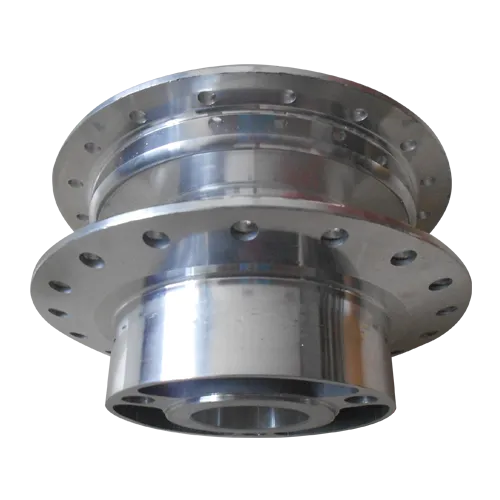Mobile:+86-311-808-126-83
Email:info@ydcastings.com
English
the two types of centrifugal compressor impellers are
Understanding the Two Types of Centrifugal Compressor Impellers
Centrifugal compressors are widely used in various industrial applications due to their efficiency and ability to compress large volumes of gases at relatively low costs. One of the key components of these compressors is the impeller, which plays a crucial role in the compression process. There are primarily two types of centrifugal compressor impellers the open impeller and the closed impeller. Each type has its unique design features, operational benefits, and specific use cases. This article will delve into these two types, highlighting their characteristics, advantages, and applications.
Open Impellers
Open impellers are characterized by their lack of shrouds, which are the coverings or casings that enclose the impeller blades. This design gives open impellers an inherent advantage in handling fluids that contain solid particles or impurities. The absence of shrouds minimizes restrictions, allowing for better flow of these contaminated fluids without risking damage to the impeller or the loss of efficiency due to clogging.
Another significant advantage of open impellers lies in their manufacturing process. They are generally easier and less expensive to produce compared to closed impellers. The design is typically less complex, which means that they can be produced in larger sizes and can be more easily customized for specific applications. Additionally, maintenance can be more straightforward because open impellers are easier to clean and inspect. They are often used in applications where the fluid being compressed may have fibrous materials or slurries, such as in wastewater treatment or pulp and paper manufacturing.
However, open impellers do have some downsides. They tend to be less efficient than closed impellers when it comes to compressing clean gases, primarily because they have a lower pressure rise and can be more susceptible to hydraulic losses. This variation in efficiency means that while open impellers are adept at handling diverse and challenging fluid compositions, they may not always be the best choice for applications needing high compression ratios or energy efficiency.
the two types of centrifugal compressor impellers are

Closed Impellers
In contrast, closed impellers are designed with shrouds, enclosing the blades on both the front and rear. This design provides several advantages, principally related to efficiency. The closed structure aids in creating higher pressure differentials and contributes to improved aerodynamic efficiency. As the gas flows through the closed impeller, the shrouds create a more controlled environment, allowing for better energy transfer from the blades to the gas.
Additionally, closed impellers are generally more efficient when handling clean gases. This characteristic makes them a preferred choice in applications like natural gas processing, air conditioning, and refrigeration systems. The design minimizes recirculation and reduces losses, resulting in better performance for compressing gases with low to moderate levels of contaminants.
However, the closed impeller design also carries some drawbacks. The enclosed nature makes them less suitable for handling liquids with high levels of solids or fibrous materials, as the possibility of clogging and wear increases. They are typically more complex and expensive to manufacture than open impellers, which can translate to higher upfront costs for equipment that utilizes these types of impellers.
Conclusion
The choice between open and closed centrifugal compressor impellers largely depends on the specific application and the nature of the gases or fluids being compressed. Open impellers offer ease of maintenance and versatility, particularly in handling contaminated fluids, while closed impellers provide higher efficiency for compressing clean gases. By understanding the characteristics and applications of each type, engineers and operators can make informed decisions that enhance performance, efficiency, and reliability across various industrial processes. As technology evolves, the design and application of impellers may continue to advance, further optimizing the capabilities of centrifugal compressors in meeting the growing demands of industry.
-
Materials Used in Manufacturing Cap End Pipe FittingsNewsNov.24,2025
-
Material Properties of CF8M CastingNewsNov.24,2025
-
How to Inspect Pump Cap Ends for DamageNewsNov.21,2025
-
Backward Curved Impeller – Efficient Airflow Solutions for Industry | YD CastingsNewsNov.21,2025
-
Automobile Water Pump - Efficient, Quiet, Durable & ElectricNewsNov.21,2025
-
Impeller for Pumps – High-Efficiency, Durable, OEM-ReadyNewsNov.21,2025











